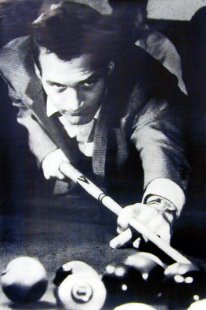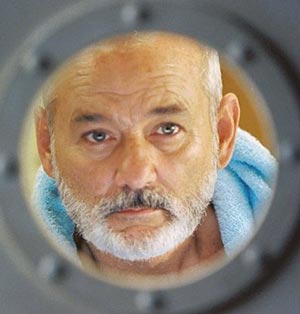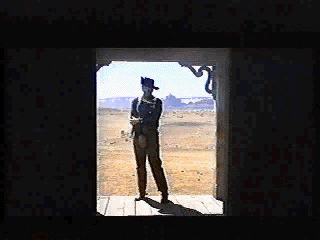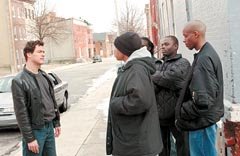96. the hustler

the movie starts, and before you know it, you are inside the story. with little fanfare, you are introduced to a semi-secret society, a backdoor world of gambling and men who act like men -- they smoke, they drink, the play poker in smoky back rooms.
paul newman is fast eddie, and he's the main character, but he isn't a hero. he's a talented pool player, sure, but he doesn't have much else going for him. and even his pool playing skills are hampered by the fact that he has too much pride and ego -- he thinks too much of himself -- and it gets in the way of his game, makes him lack that function that lets him quit while he's ahead. call it the gambler's curse.
the movie is structured strangely. the first half hour or so consists of fast eddie getting to and playing the biggest game of his life. because of his achille's heel, he loses. and the rest of the movie consists of trials and challenges that he has to go through before he can go back and play that fateful game again -- and win this time.
to win, he has to be broken down completely. he has to learn how to let himself be loved, in this case by a crippled yet beautiful young woman. he has to learn to curb his desire to roam, give himself to her. "what's your idea of love? chains?" no, but it is being there. he has to lose the girl to realize what he lost.
he has to lose more pool to take care of that pesky pride. he has to learn that he's not the best at what he does, and that talent alone will only take you so far. he has to get his thumbs broken to wipe that charming smile off his face.
and he has to go back and play the game with a new ferocious fever. he has to play the game deeper, dance with it, and beat his opponent with more than talent -- with conviction. because he is a loser, that much is true. but this is the one thing he is good at, and he is taking it to the top. which can look suspiciously like the bottom if you've got the right eyes.



